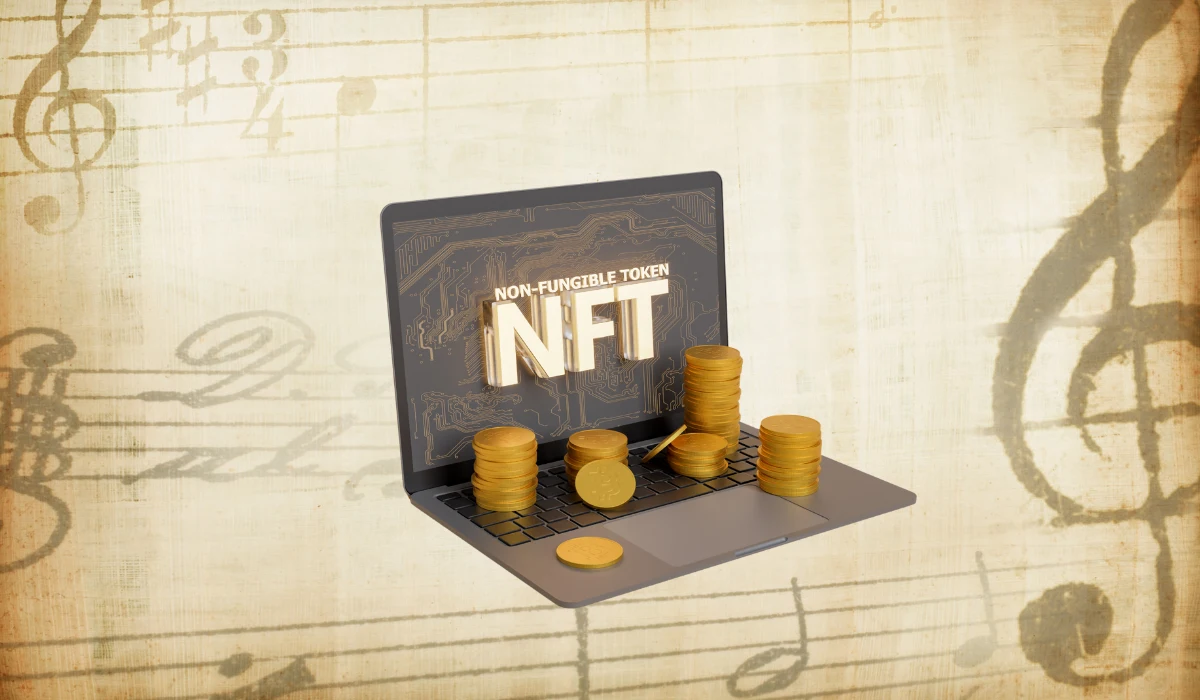How Musicians Are Using NFTs to Regain Control of Their Music Rights

The music industry has long been criticized for its opaque royalty structures and unfair compensation models that leave many artists struggling financially while intermediaries profit. Today, a growing number of musicians are turning to non-fungible tokens (NFTs) as a revolutionary tool to reclaim ownership of their work, connect directly with fans, and build sustainable careers on their own terms.
The Traditional Music Industry Problem
For decades, musicians have faced significant challenges in the conventional music business model. Record labels typically retain master recording rights, leaving artists with minimal control over their own creations. Streaming platforms pay fractions of pennies per stream, making it nearly impossible for independent artists to earn a living wage. Additionally, the complex web of publishers, distributors, and rights management organizations often means artists wait months or even years to receive royalties—if they receive accurate payments at all.
This broken system has created a power imbalance where artists, the actual creators of music, often see the smallest slice of the revenue pie. Many musicians find themselves locked into unfavorable contracts that span years, limiting their creative freedom and financial independence.
Understanding Music NFTs
Non-fungible tokens are unique digital assets verified on blockchain technology. Unlike cryptocurrencies such as Bitcoin, which are interchangeable, each NFT is one-of-a-kind and can represent ownership of specific digital or physical items. In the context of music, NFTs can represent songs, albums, concert tickets, exclusive experiences, or even fractional ownership in music rights.
What makes NFTs particularly powerful for musicians is the ability to embed smart contracts—self-executing agreements written in code. These smart contracts can automatically distribute royalties to artists every time their music NFT is resold, creating a perpetual revenue stream that was previously impossible in traditional music distribution.
How Artists Are Taking Back Control
Musicians across genres are experimenting with NFTs in innovative ways that fundamentally shift the power dynamics of the industry. Independent artists are minting limited edition releases directly to their fanbase, bypassing record labels entirely. This direct-to-fan model allows creators to retain complete ownership of their master recordings while capturing significantly higher percentages of revenue.
Some artists are selling fractional ownership of their songs through NFTs, allowing fans to become investors in their favorite music. When these songs generate revenue through streaming, licensing, or other uses, NFT holders receive their proportional share. This model transforms the traditional fan-artist relationship into a genuine partnership where supporters can financially benefit from an artist’s success.
Established musicians are also using NFTs to buy back their masters from record labels. By selling NFT collections to their fanbase, artists can raise the capital needed to purchase their own music rights, effectively crowdfunding their independence. This approach has enabled several artists to escape restrictive contracts and regain full control over their creative output.
Real-World Success Stories
Electronic music producer 3LAU made headlines by selling an NFT album for over eleven million dollars, demonstrating the immense potential of this technology. Hip-hop artist Azealia Banks sold audio and visual artwork as NFTs, earning more in a single drop than she would have from months of streaming revenue.
Kings of Leon became the first major band to release an album as an NFT, offering special perks to token holders including front-row concert seats for life. The British band Muse released their latest album as a limited edition NFT, with each copy numbered and authenticated on the blockchain.
These examples represent just the beginning of what’s possible. Lesser-known independent artists are finding success too, building devoted communities of NFT collectors who support their work directly without the need for label backing or playlist placements.
Benefits Beyond Financial Control
The advantages of music NFTs extend beyond monetary considerations. Artists gain valuable data about their audience, including who owns their music and how engaged these collectors are. This direct relationship enables musicians to communicate with supporters, offer exclusive content, and build sustainable careers based on genuine fan connections rather than algorithm-driven streaming numbers.
NFTs also provide verifiable proof of authenticity and ownership, solving long-standing issues with music piracy and unauthorized distribution. Blockchain technology creates an immutable record of transactions, making it easy to trace the provenance of any musical work.
Additionally, the composability of blockchain technology means music NFTs can be integrated into virtual worlds, gaming platforms, and metaverse experiences, opening entirely new revenue streams and creative possibilities for artists willing to embrace innovation.
Challenges and Considerations
Despite the promising potential, music NFTs face legitimate challenges. The technology remains complex for average consumers, creating barriers to mainstream adoption. Environmental concerns around blockchain energy consumption have sparked criticism, though many platforms are transitioning to more sustainable models.
The speculative nature of NFT markets also presents risks. Price volatility can be extreme, and not every music NFT project succeeds. Artists must carefully consider their approach, ensuring they’re building genuine value for supporters rather than exploiting hype cycles.
Regulatory uncertainty remains another concern, as governments worldwide are still determining how to classify and tax NFT transactions. Musicians exploring this space should consult with legal and financial professionals to ensure compliance.
The Future of Music Ownership
As technology matures and becomes more user-friendly, NFTs are likely to play an increasingly important role in how music is created, distributed, and monetized. The fundamental value proposition—artists retaining control while building direct relationships with supporters—addresses genuine problems that have plagued the industry for generations.
Whether NFTs represent a complete revolution or simply one tool among many, they’ve already demonstrated that alternative models for music rights and compensation are possible. For musicians tired of unfair contracts and opaque payment systems, blockchain technology offers a path toward true creative and financial independence.
The artists embracing NFTs today are pioneers, experimenting with new possibilities and proving that musicians don’t need to sacrifice ownership for opportunity. As more creators discover these tools and platforms become more accessible, the balance of power in the music industry may finally shift toward those who make the music possible—the artists themselves.












